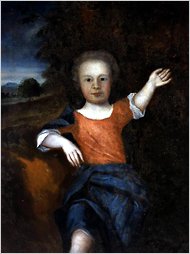In the 1 March 2011 printing of the New York Times, Howard Markel, M.D. challenges the anti-vaccine movement in the United States by claiming, in a sense, that disease prevention through inoculation or vaccination is as American as the spirit of the Declaration of Independence. In his essay entitled “Life, Liberty, and the Pursuit of Vaccines,” Markel claims that public health measures to control infectious diseases such as smallpox through inoculation “framed the early days of our nation as tightly as the ‘unalienable rights’ of life, liberty, and the pursuit of happiness.” In 1764 John Adams was inoculated, and he encouraged his family to do so as well in 1776. In 1777 General George Washington ordered his soldiers to be inoculated because more of them were dying of smallpox than from wounds received in battle. In 1782 Thomas Jefferson inoculated himself and his children.
Inoculation was a controversy practice when it was first introduced. In 1721 Cotton Mather, a Puritan minister, and Zabdiel Boylston a Boston physician, promoted inoculation by inoculating their children, servants, and patients. James Franklin, the brother of Benjamin Franklin, opposed the practice due to its inherent danger and the fact that it violated the Sixth Amendment (“Thou shalt not kill”).
Inoculation involved placing variola-infected dried scabs or fresh pus under the skin of a healthy, uninfected patient. The procedure caused a milder form of smallpox and conferred lifelong immunity. However, many people did become seriously ill and some did die. A major concern was whether an inoculated individual could infect others.
Benjamin Franklin became one of the greatest advocates of inoculation at the time. In 1730 he reported that of 72 Bostonians inoculated with variola, only 2 died while the rest recovered completely. Franklin noted in his newspaper, The Pennsylvania Gazette, that when compared to the 1 in 4 death rate of “wild” smallpox, inoculated smallpox was much more favorable.
Despite Franklin’s support for inoculation, his son died of smallpox at the age of 4. Franklin claimed that the child had not been inoculated because he was suffering from a diarrheal disease, and his death haunted Franklin for the rest of his life. In his 1788 autobiography, Franklin pleaded parents to seek inoculation efforts for their children, “In 1736 I lost one of my sons, a fine boy of four years old, by the way of smallpox, taken in the common way. I long regretted bitterly, and still regret that I had not given it to him by inoculation. This I mention for the sake of parents who omit that operation, on the supposition that they never forgive themselves if a child died under it, my example showing that the regret may be the same either way and that, therefore, the safer should be chosen.”
Whether or not inoculation or vaccination efforts are inherently American is open for discussion. However, what seems to be clear is that when dealing with preventable, infectious diseases, any measure that reduces risk for the patient must be undertaken not only to protect the individual but also to protect the greater masses, both physically and psychologically.
 |
| Benjamin Franklin's son Franky died of smallpox |
http://www.nytimes.com/2011/03/01/health/01smallpox.html?_r=1&ref=health
-Owen Marecic
No comments:
Post a Comment